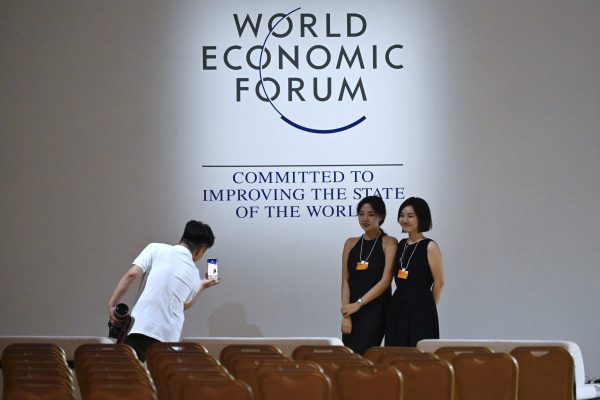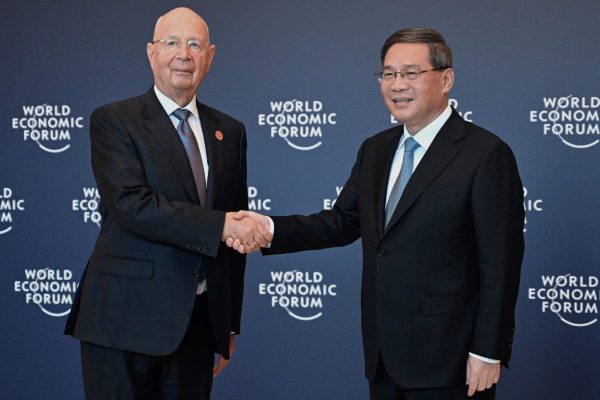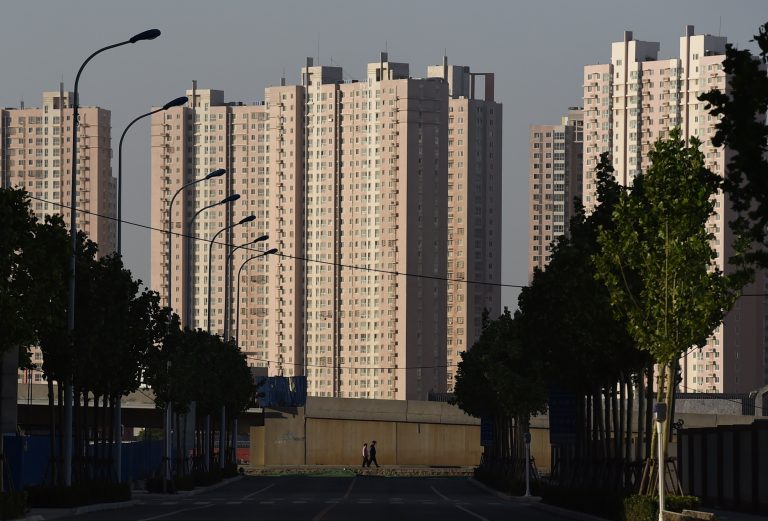Li Qiang, China’s new premier, addressed the World Economic Forum on Tuesday, June 27 at a meeting in Tianjin, the port metropolis near Beijing, where he stated that the Chinese economy would experience the opening of “high level” sectors to outside trade.
While alluding to a stimulus policy put in place by the regime, Li Qiang did not specify what “practical and effective measures” would be used to bring about what he described as “expanding the potential of domestic demand, activating market vitality, promoting coordinated development, accelerating green transition, and promoting high-level opening to the outside world.”
Li said that China’s annual economic target of around 5 percent would be reached during the second quarter, demonstrating increased economic performance compared to the start of the year, but China’s GDP has been reported as fading sharply since the first three months of the year, reporting a 4.5 percent increase.
China’s GDP grew 4.5 percent over the previous year’s first quarter in the first three months of 2023, but momentum has faded sharply since.

After May, retail sales data disappointed expectations as did industrial output, indicating that Beijing would be impelled to bolster an unsteady post-COVID recovery. According to data from the National Bureau of Statistics (NBS), profits fell 21.4 percent in the first three months, with a slight rise in April’s performance.
Success
You are now signed up for our newsletter
Success
Check your email to complete sign up
With the world’s overall economic situation worsening, many are watching to see how China, the world’s second-largest economy, copes with current challenges, including falling population growth coupled with pandemic losses. Low economic growth was projected for the first quarter, with the outlook projected to rise during the second half of 2023.
Several major banks have cut their 2023 gross domestic product (GDP) forecasts. Nomura, the principal member of Japan’s largest investment bank and brokerage group, cutting its 2023 GDP forecast from 5.5 percent to 5.1 percent. The impact of potential policy stimulus measures was said to have been incorporated into new forecasts, according to the bank.
Having just returned from visits to Germany and France, Li also alluded to the recent negative rhetoric directed towards China by leading Western democracies. He referred to other countries’ moves to protect themselves from China’s aggression and manipulation as leading to global “fragmentation and confrontation” by putting up “invisible barriers.”
Li seemed to refer to the European Commission President Ursula von der Leyen’s call for Europe to “de-risk” diplomatically and economically from China when he stated, “Everyone knows some people in the West are hyping up this so-called ‘de-risking,’ and I think, to some extent, it’s a false proposition.”
In an apparent reference to trade tensions between China and the US, Li said, ”The invisible barriers put up by some people in recent years are becoming widespread and pushing the world into fragmentation and even confrontation.”
At the moment on the world’s stage when China watchers have described China’s behavior towards democratic counties, especially the US, as a cloaked form of “total war”, the administrator stated, “We firmly oppose the artificial politicization of economic and trade issues.” He suggested that tensions were a result of inadequate communication that failed to avoid bilateral and multilateral misunderstandings.

Despite his summary of world affairs, Li emphasized that China was open for business and a welcome place for foreign investors, with a steady trend of globalization that remained in place despite some delays.
Li was appointed in March and has offered similar assessments since that time.
Speaking in a separate meeting with Chinese and foreign business leaders, Li sought to reassure them that the government would continue to support foreign firms’ presence. He mentioned wanting to improve government purchasing of medicines and to pay attention to data regulation concerns shared by foreign companies.
Li alluded to foreign firms being subject to the scrutiny of security checks, saying that China would not misuse them, yet warned foreign firms that some had violated Chinese rules.
The Biden administration has said in its October 2022 National Security Strategy that the People’s Republic of China (PRC) is using, among other things, “increasing influence over international institutions to create more permissive conditions for its own authoritarian model,” and that “The PRC is the only competitor with both the intent to reshape the international order and, increasingly, the economic, diplomatic, military, and technological power to do it. Beijing has ambitions to create an enhanced sphere of influence in the Indo-Pacific and to become the world’s leading power.”
Li Qiang’s World Economic Forum speech this week played familiar word games without specifying real action, apparently so as to entice or reassure foreign investors.















